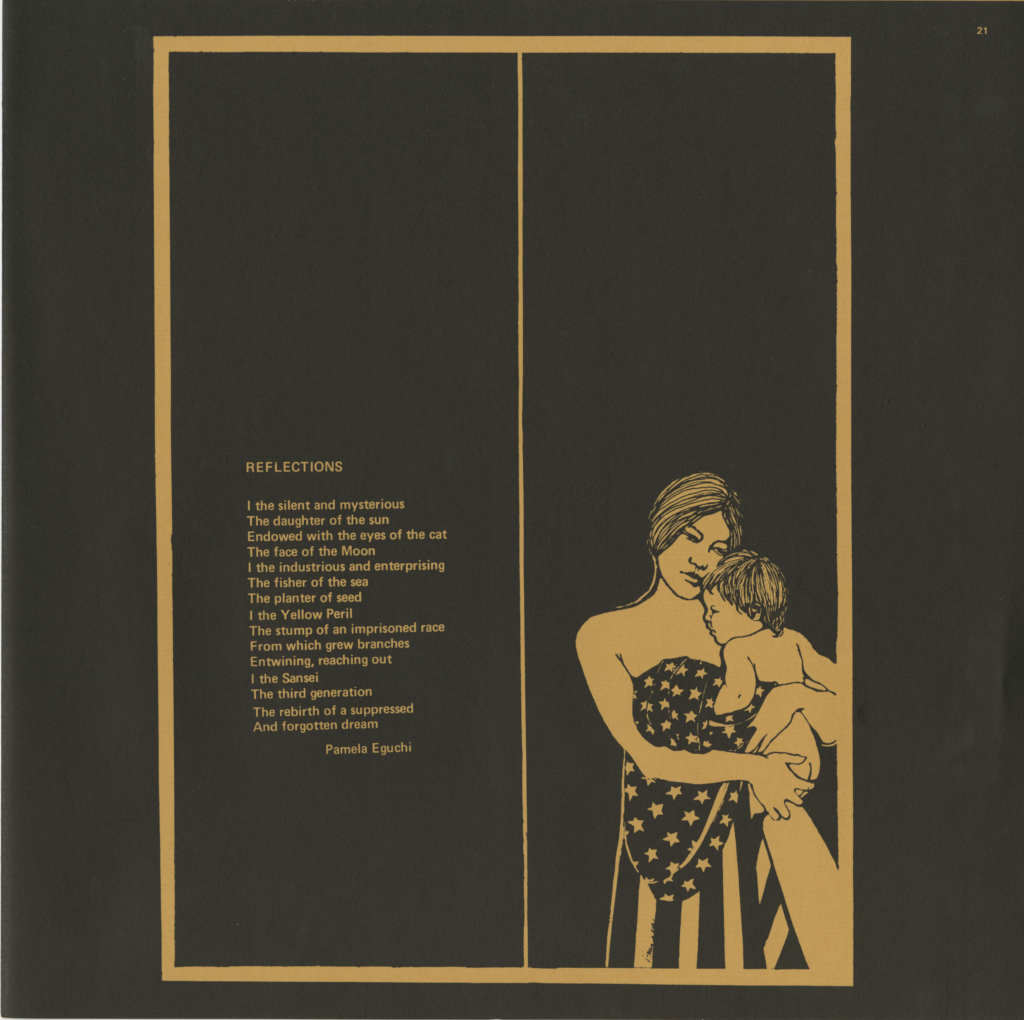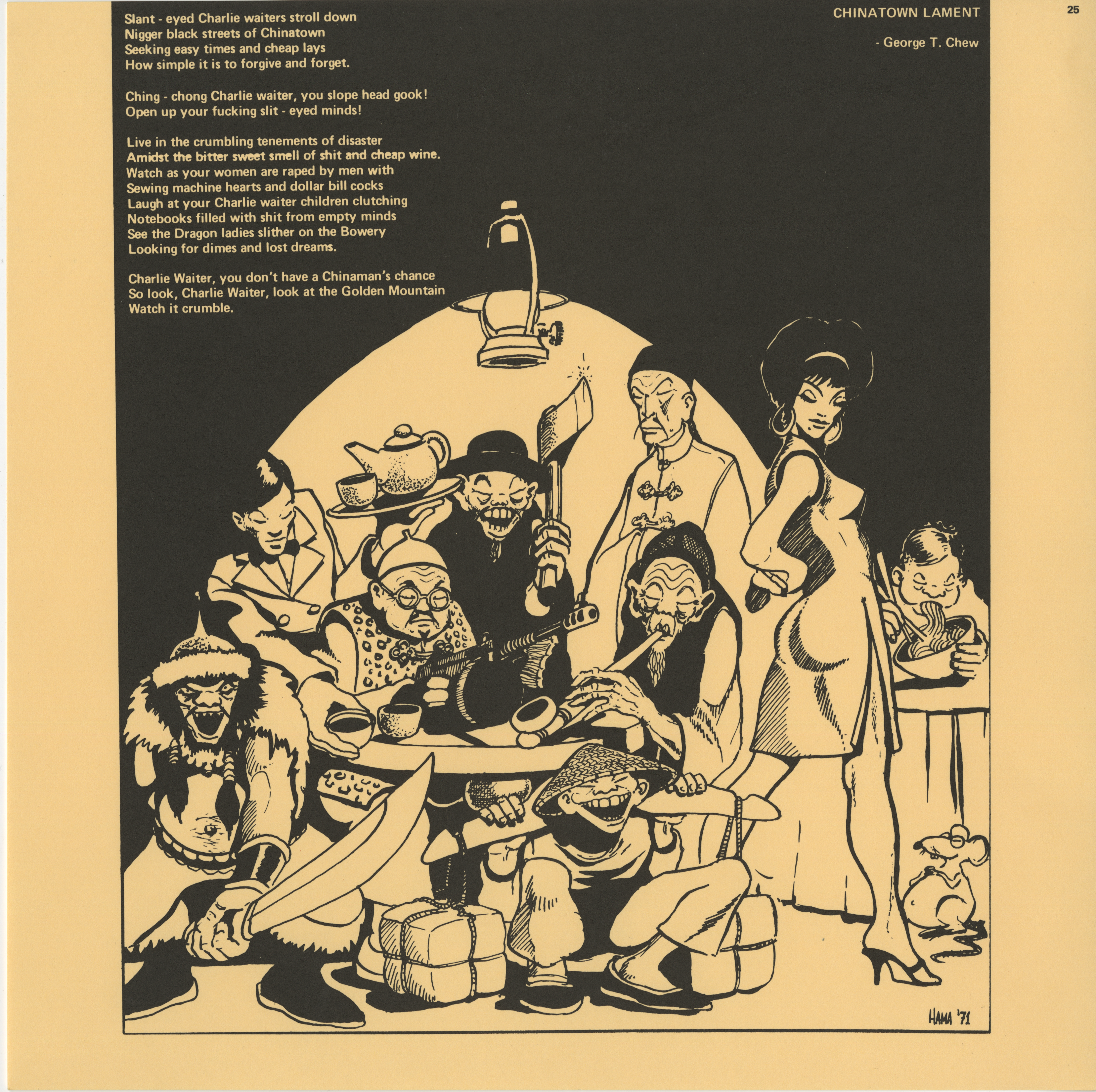A major project of the Basement Workshop was the Asian American magazine, Bridge. Originally created to bridge the gaps between overseas and US-based people of Chinese descent, the magazine expanded their editorial staff and priorities to include a range of Asian American concerns. Then Managing Editor, Frank Ching, focused on the search for Asian American identity and belonging in the magazine’s second issue.
Over the magazine’s eight year run at the Basement (publication continued at Asian CineVision until 1985), issues of identity, belonging, race, culture, and politics were always are the fore. The magazine gave many prominent Asian American scholars, writers, and artists their first exposure to writing in a public forum.
Physicist and professor, Michio Kaku, wrote an article for the magazine regarding anti-Asian racism and the employment of orientalist stereotypes in the comics.
Alongside educating their readers, editors of Bridge made it known to the broader public that endemic stereotyping of Asians in the media could no longer be tolerated. In a scathing letter to the editors of People Weekly, Bridge editors voiced their disgust at portrayals of Asians as “uncivilized” in their December 8, 1975 issue.
The coordinators and contributors to Yellow Pearl too grappled with issues of identity and race in their art and poetry.


Aside from the arts, the Basement Workshop engaged in social activism to combat racism and inequities in Chinatown. In 1975, Peter Yew was brutally beaten by police officers in Chinatown after being a part of a crowd that had gathered in front of the police station on Elizabeth Street. In the aftermath of Yew’s beating, many community groups organized for weeks to coordinate a massive march, the largest of its kind in Chinatown. Organizers distributed bilingual leaflets and connected increased police abuse to massive social issues. Businesses closed and workers had the day off on May 19th, as upwards of 20,000 marched to City Hall.
The Basement Workshop’s youth publication, Voice of Chinatown, dedicated their first issue to the problem of police brutality and the racist nature of policing in their community. The publication included interviews excerpts with Chinatown residents, a write-up of the Peter Yew case, and surprisingly, a letter from Fifth Precinct police officers.